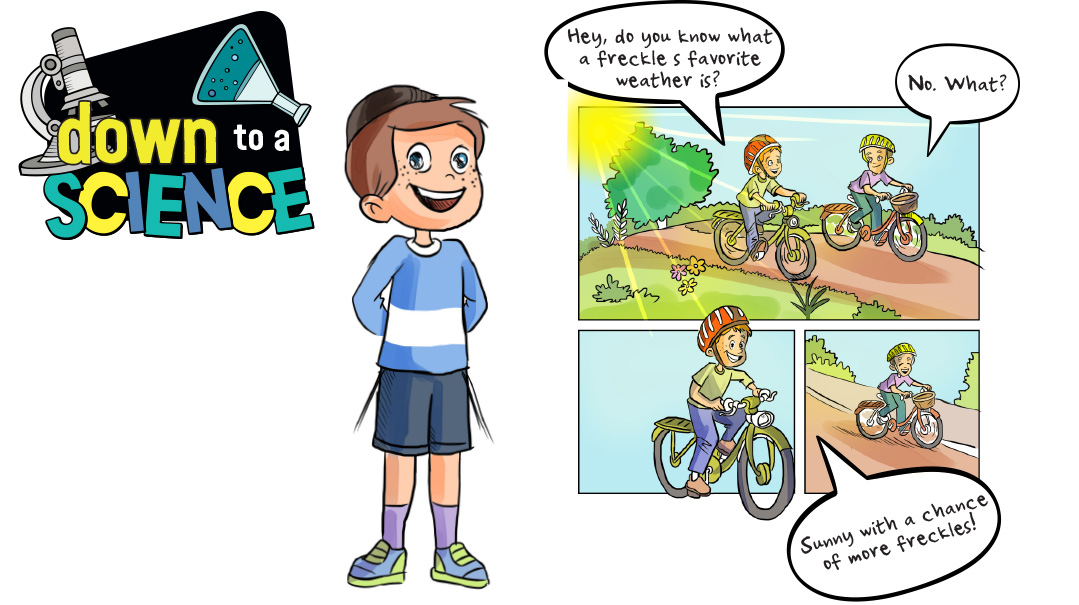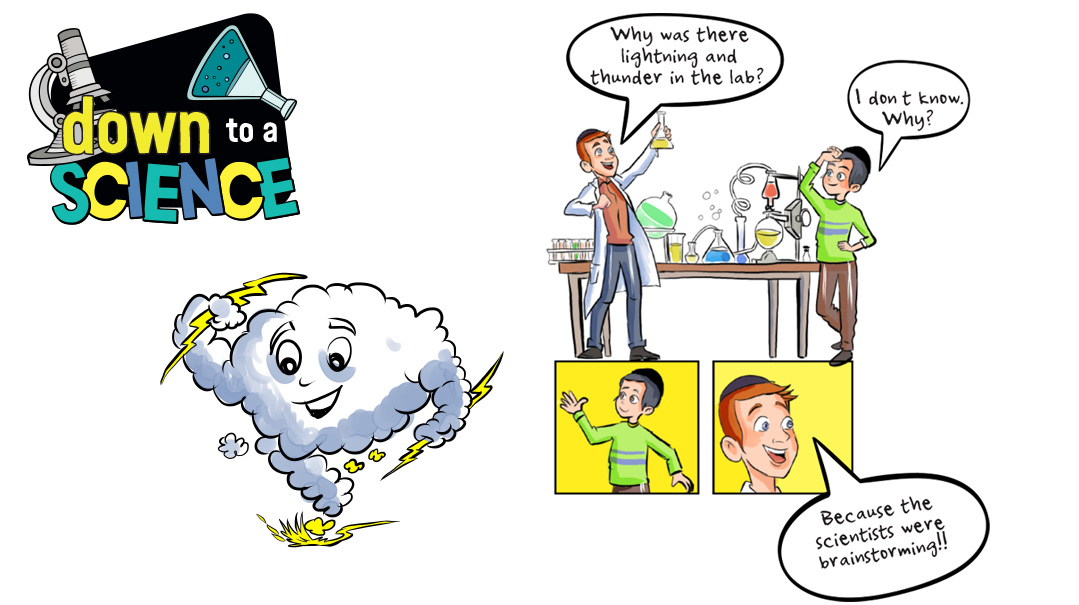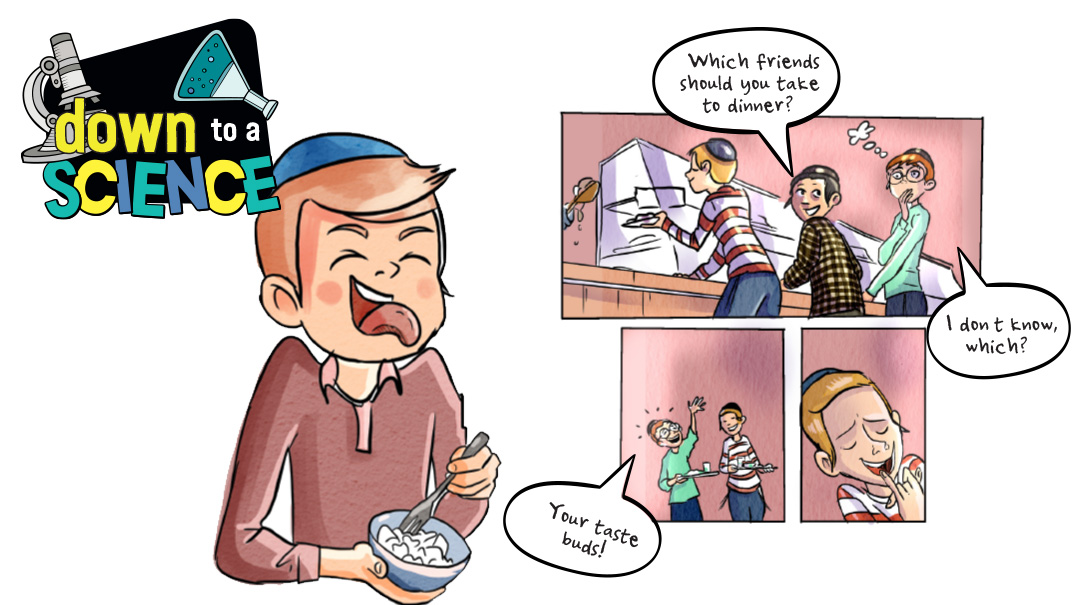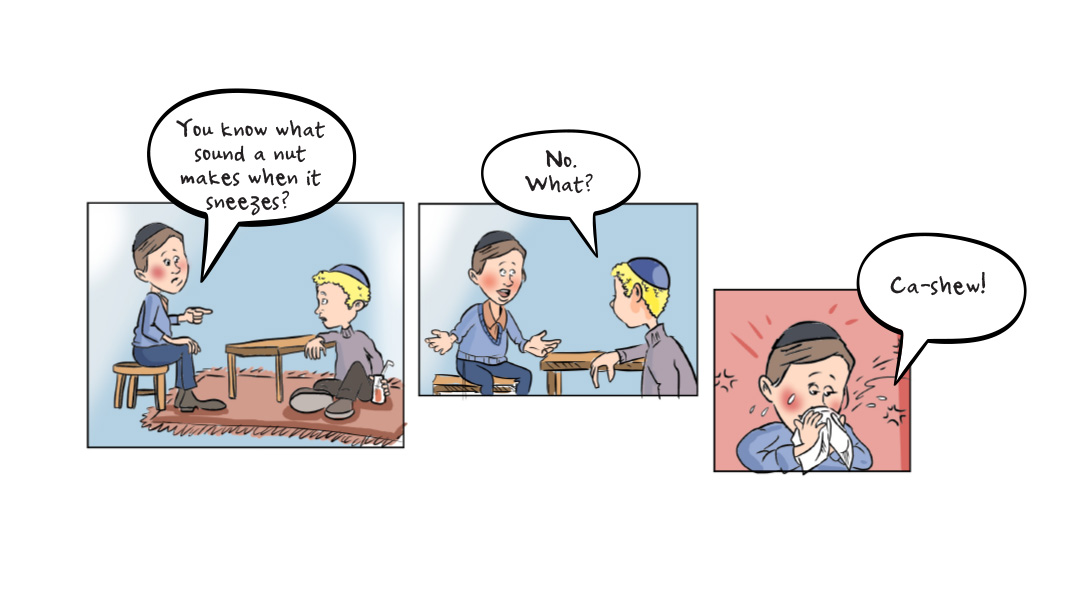What Is Saliva?

Here are some fascinating facts about saliva
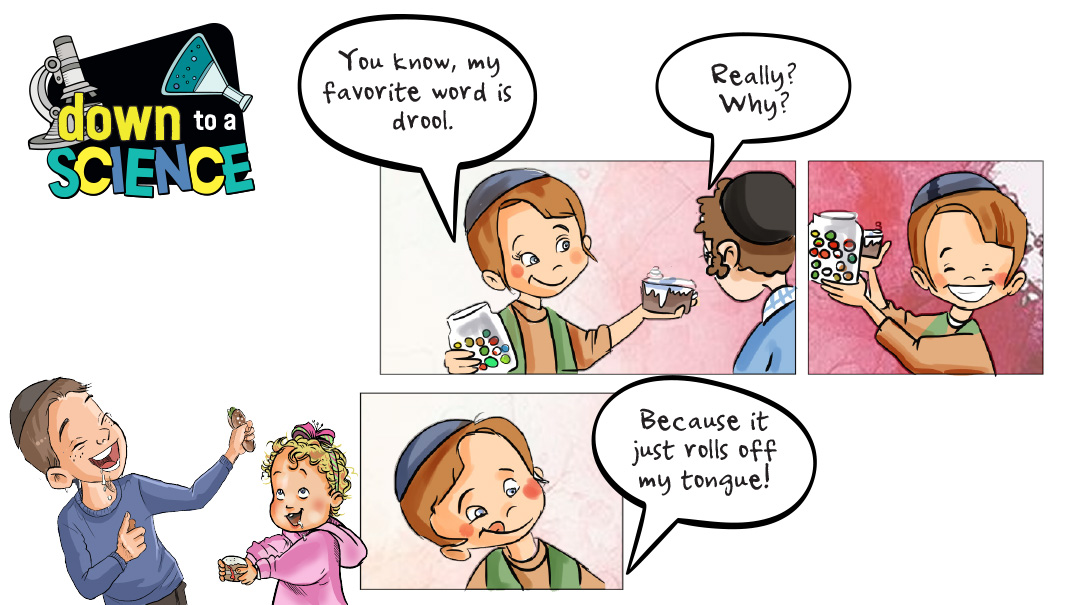
Hello, kiddos,
This is Professor Mordy Maven, Thinker, Wonderer, and Figure-Outer of all things Science-ish. What that basically means is I try really hard to figure stuff out. I do the hard work so you don’t have to!
Yesterday, Shimmy and I were walking home from school and he started talking about the individual deli rolls his mother made for Shabbos. That’s why he’s called Chef Shimmy. Because when he isn’t eating food, he’s thinking about it! His mother mixed corned beef, pastrami, and turkey, and shmeared the inside of the puff pastry with mustard and mayonnaise. On top, she coated it with duck sauce and sprinkled on crispy fried onions. She served it with a mini, crunchy pickle on the side. I’m a little embarrassed to admit that when I heard that, I started drooling.
As I was wiping the spit off my chin, I wondered, why is my mouth suddenly filled with liquid? And if my mouth can fill up with liquid on its own, why do I ever need to take a drink? Also, should I spit this stuff on the sidewalk or just swallow it? And if I decide to swallow, do I need to say shehakol?
That’s when I realized that I needed to learn more about saliva, what it is, and why we have it. So off I went to the kitchen to grab some rugelach and chew on some information.
Oops! We could not locate your form.


